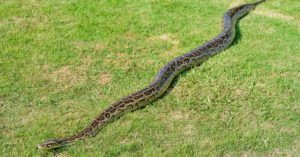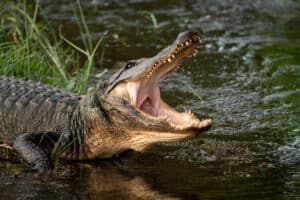Continue reading for our analysis...
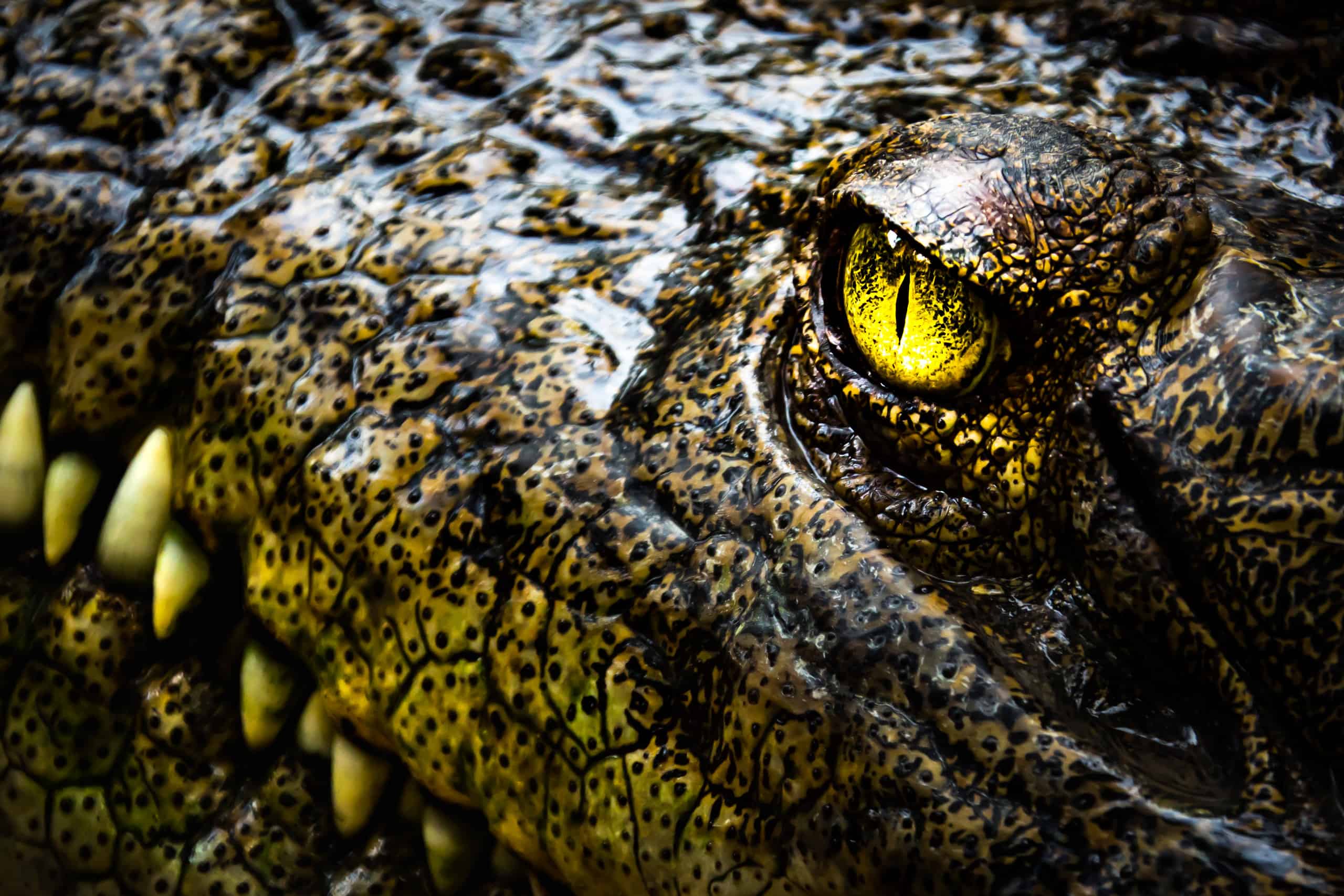
Going camping is supposed to be an enjoyable experience that helps you disconnect from the daily grind and get close to nature. Well, a camper filmed his experience waking up in the middle of the night to nature wanting to get close to him!
A man captured on camera the terrifying moment he awoke to discover a swarm of snapping alligators attempting to enter his tent. Victor Trindade and a companion are shown in the dramatic video, which was shot in the middle of the night, shining flashlights over a tent that had flipped over due to the weight of all of these gators!
When the gators clamber over the tent and confront the unfortunate campers in a gazing contest, the flashlight reflects off the eyes of the hungry beasts. The men were apparently camped up next to a river when the ancient reptiles were able to easily surround the tent.
“The camp didn’t work out very well. To clear up doubts,” he captioned the footage.
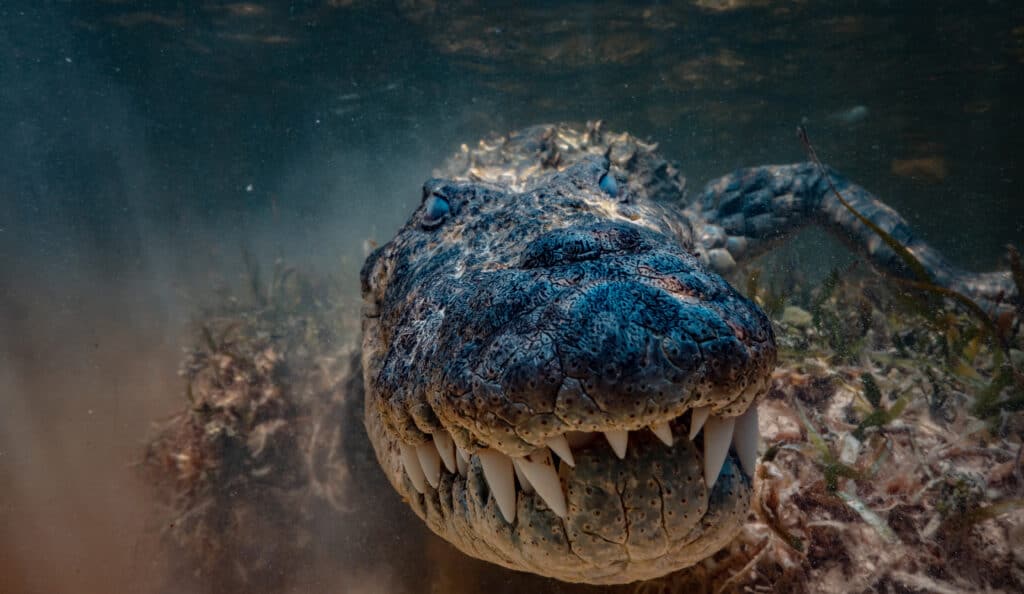
The oldest
alligator
fossil ever found was formed in the Eocene Epoch.
©Willyam Bradberry/Shutterstock.com
Several of his 1.1 million fans were perplexed as to how the campers managed to flee after being so near the apex predators. Others were amazed by the group’s ability to remain composed in the face of the alligator onslaught.
Is It Normal For Alligators To Hunt Humans?
The majority of alligator bites on people occur when they go after what they perceive to be prey rather than because they are being aggressive. Because they are opportunistic eaters, alligators will consume anything that is simple to obtain. In general, humans do not fit that description.
Gators typically only pursue prey that they can easily defeat. People are rarely bitten by alligators unless they are actively seeking food. Males that are aggressively mating or females defending their nests are other causes of bites.
Alligator bites typically occur in or around the water’s edge. They frequently lunge at prey when it is within a few feet of the shore. Even a juvenile alligator has rather big jaws that are capable of crushing prey with a force of over 2,000 pounds per square inch (psi).
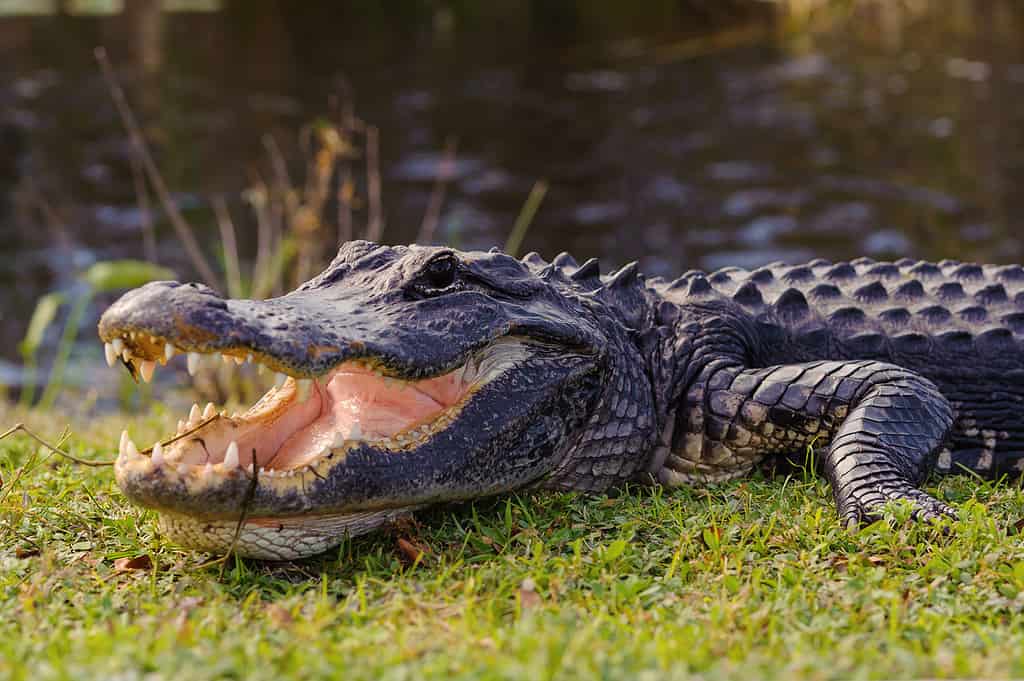
The primary cause of alligator bites on humans is often attributed to their instinctual response of pursuing what they perceive as potential prey rather than stemming from aggressive behavior on their part.
©Sorbis/Shutterstock.com
A human can squeeze food with 150 psi of force, in contrast. The best course of action if an alligator bites you, is to fight back while creating as much disturbance as you can. The alligator may loosen its hold if you hit, kick, or poke it in the eyes.
Gators frequently release their hold on their prey and turn away when they cannot easily overcome it. Thankfully, nobody was bit or harmed by a gator on this camping trip. Watch the nightmare fuel below to see just how scary these creatures can be!
Alligator Size at Different Life Stages
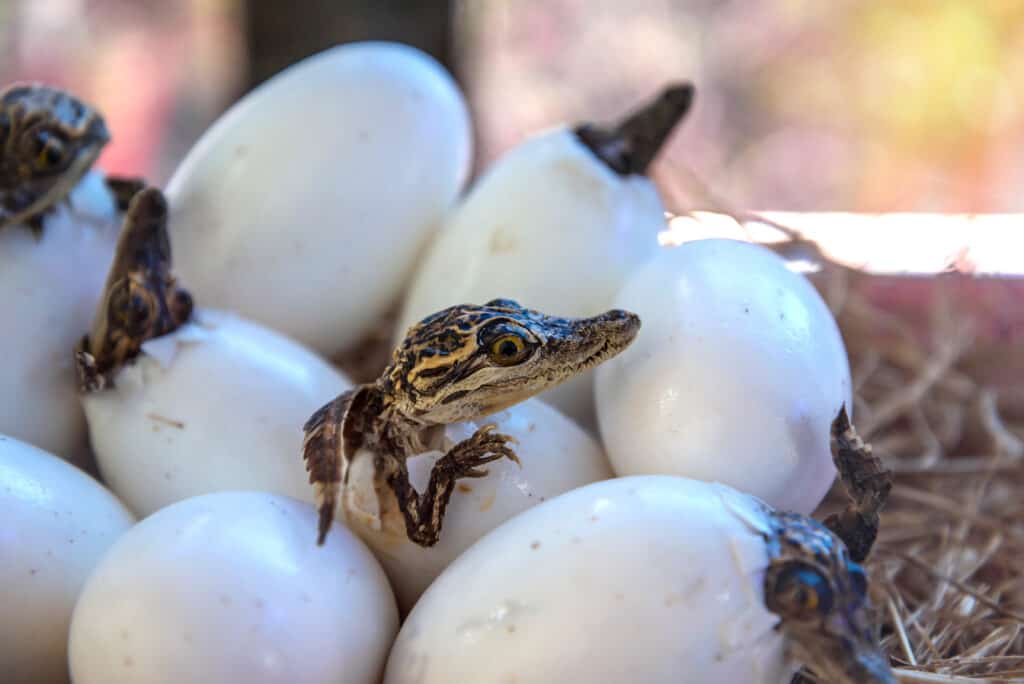
Alligator eggs can survive under a wide variety of conditions, making it relatively easy for alligators to replenish their population.
©iStock.com/Casanowe
Alligators are one of the most iconic animals in the world and can be found in many places. They range in size from small hatchlings to massive adults.
In their early stages, baby alligators, or hatchlings, are usually between six and eight inches long. As they grow, they can reach up to three feet in length. During this stage, they can move quickly and jump up to 6 feet in the air in a single leap.
As alligators reach adulthood, they can grow to be up to 15 feet long and weigh up to 1,000 pounds. That’s almost as big as a school bus! At this stage, they have long, powerful tails used for swimming and can move up to 20 miles per hour in the water.
Females tend to be smaller than males, and the biggest alligator ever recorded was 19 feet 2 inches long and weighed 1,011 pounds. This giant was discovered in Louisiana in 1890.
No matter the size, alligators are fascinating creatures and have been around since the time of the dinosaurs, making them one of the oldest species on the planet.
Thank you for reading! Have some feedback for us? Contact the AZ Animals editorial team.



